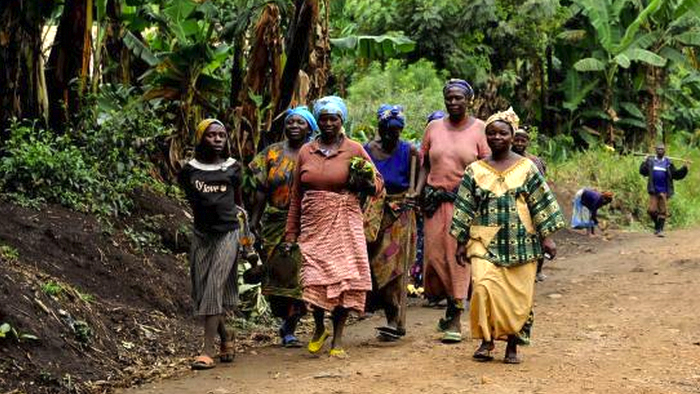
Photo: Fiona Lloyd-Davies
Over the course of the past twenty years, nearly 5.5 million people have died in the Democratic Republic of the Congo, mostly due to poor public health conditions. Half of those victims were under the age of five. Rich in natural resources, even these have become vulnerable in a country where war and corruption have resulted in an increasingly vulnerable infrastructure.
But what does any of this actually look like?
People tend to pay attention to things when they can see them. Poverty and war, particularly in sub-Saharan Africa, are ineffably tragic—but regrettably, to many Westerners, they're ever-distant. Statistics may be staggering, but they're remote and impenetrable.
Even a statistic about something as heinous as rape.
A US study in 2011 estimated that forty-eight women are raped every hour in the Democratic Republic of Congo (and even this may be a conservative estimate). But visual evidence is emotional evidence: we grasp human suffering when we can hear it, and remember it when we can see it.
In her astonishing film, Seeds of Hope, director Fiona Lloyd-Davies does just this. She chronicles a mass rape in the eastern part of the DRC, and reveals some of the stories of the ninety-seven women and thirty-three girls—some of them as young as six—whose lives were forever changed by this unspeakable event.
This is not making change: it is enduring it.
Unspeakable, yes: but not entirely unshowable, as Lloyd-Davies so sensitively demonstrates. If pictures speak louder than words, moving pictures should shout to the world that this is one of the most profound humanitarian crises of our time. And something must be done to change it.
